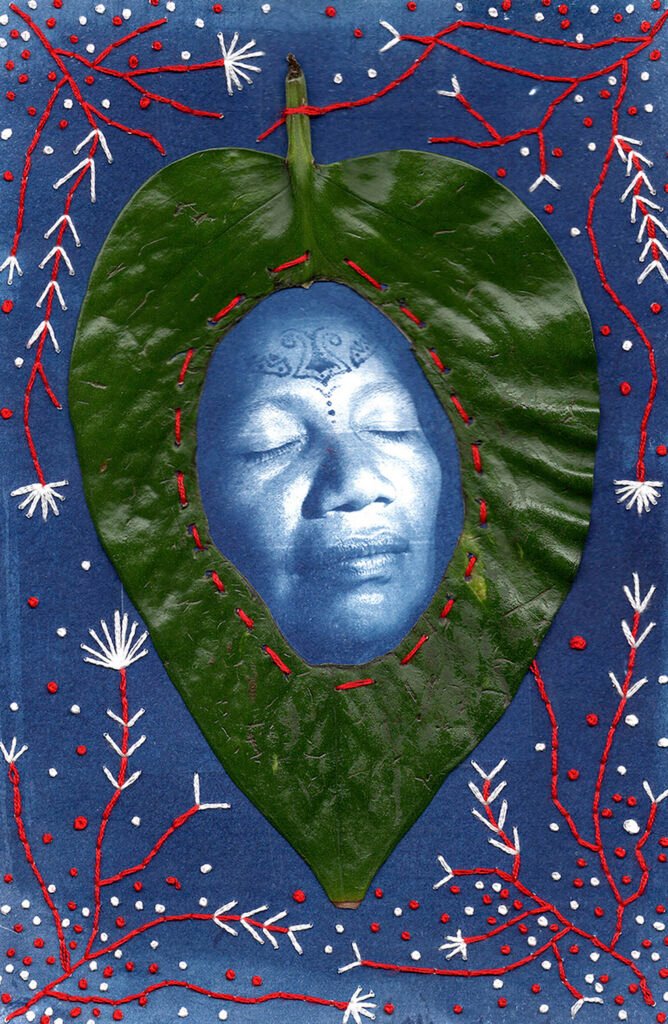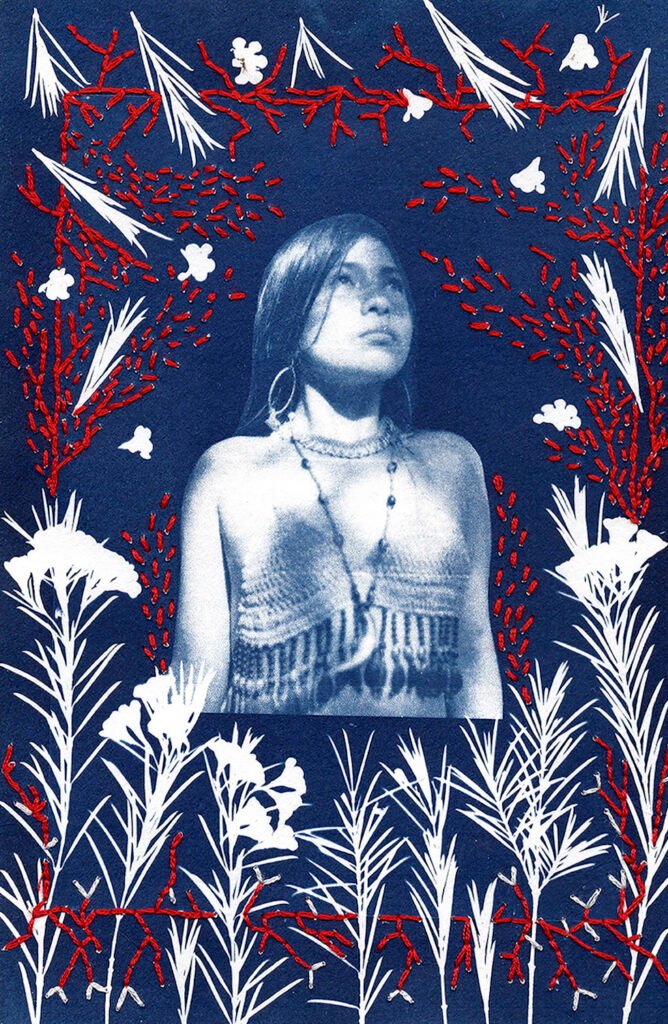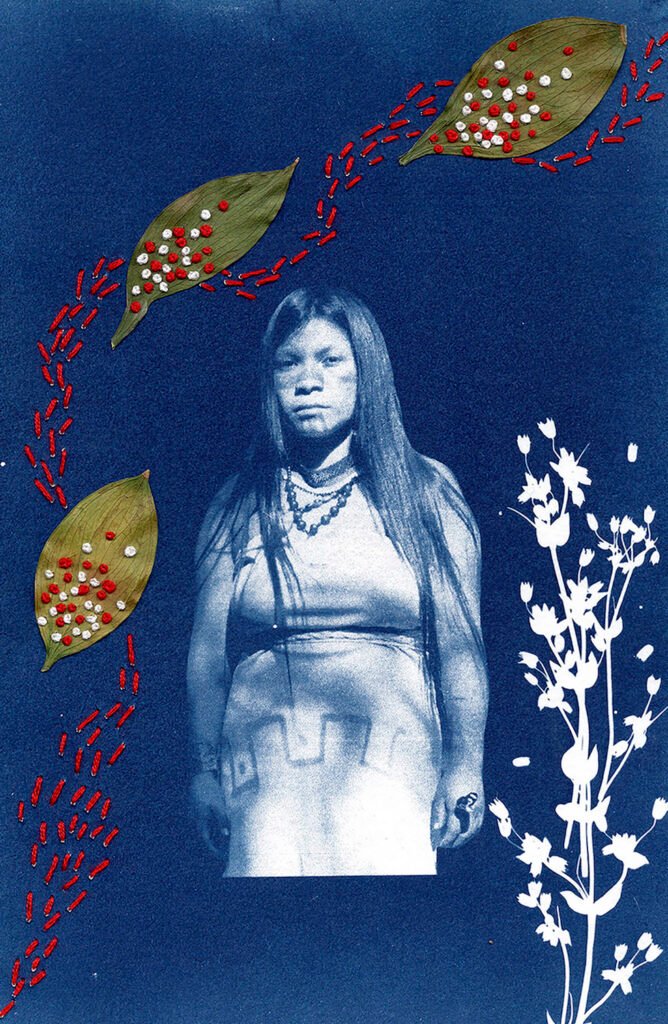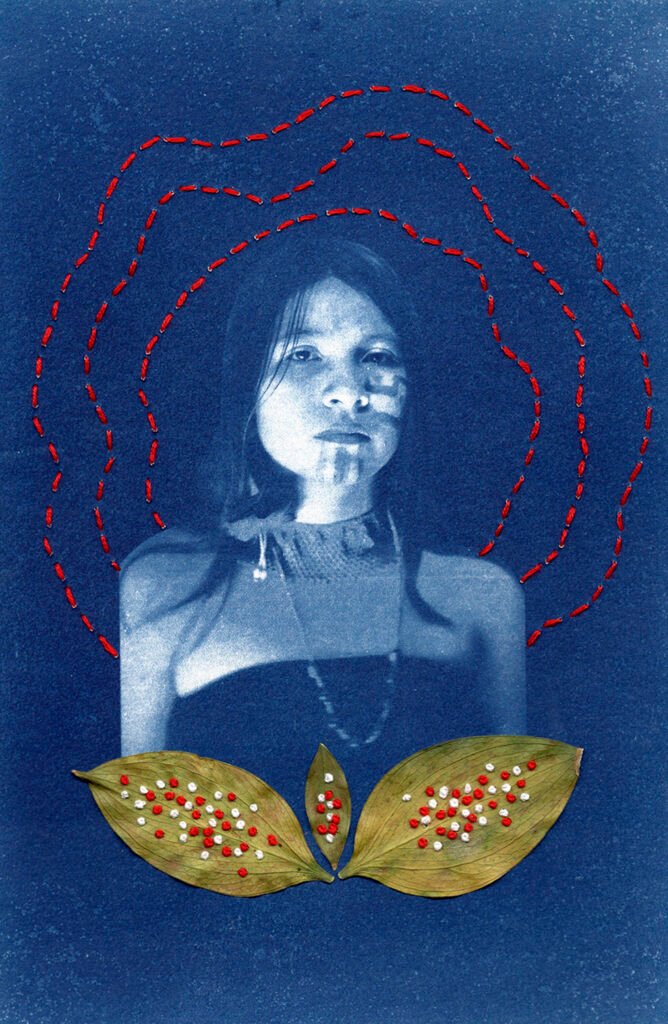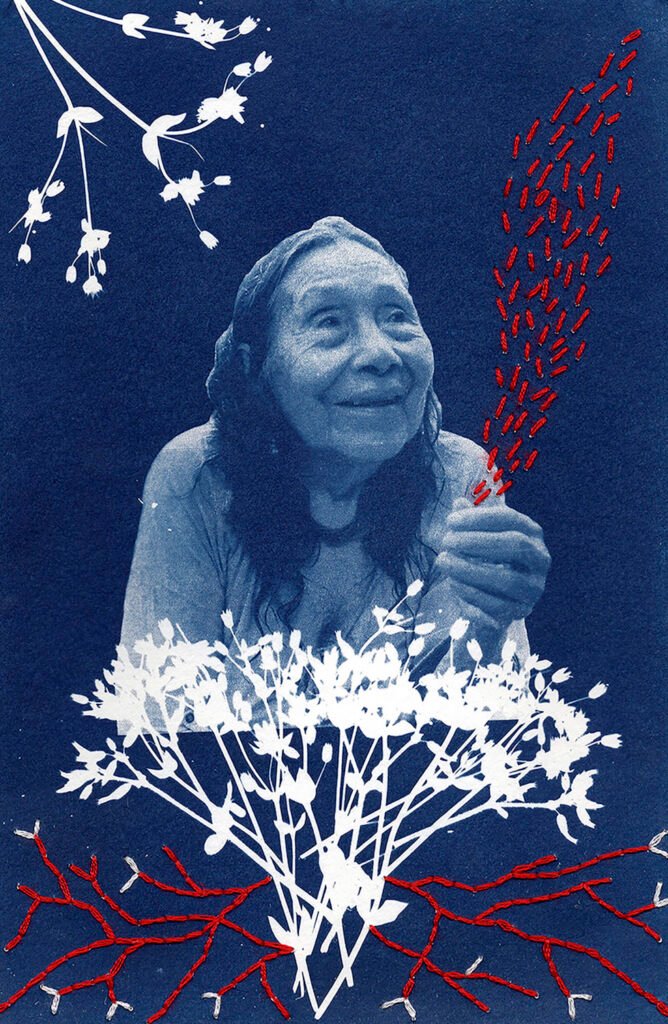The unbridled productivity that we apply to our lives has spread to our relationship with the environment. Half a century has passed since the publication of the report The Limits to Growth—commissioned by the Club of Rome in 1972—which warned about ecological overreach, and despite our having already reached peak oil, which has put an end to the era of cheap fuel, the exploitation of natural resources continues.
Tatiana López presents an ethnographical study carried out in collaboration with Sapara women from the Ecuadorian Amazon, who are fighting against the extraction of fossil fuels and the loss of their ancestral knowledge. In their worldview, all living forces are connected. Rivers, forests, mountains, winds and animals, including human animals, are bodies of water, united with the body of the Earth and the spirit world, which we communicate with through dreams. For them, living well (witsa ikichanu) means taking care of these ties. The cyanotype technique used to take the photographs refers to the water that connects bodies, while the red embroidery sews together these ancestral narratives that today are more relevant than ever.
Tatiana López was born in Ecuador in 1990. She is a visual artist, anthropologist and storyteller based in New Jersey, USA. Her training includes a master’s degree in Visual Anthropology from the Freie Universität Berlin. Her first ethnographic film essay Naku Ikinyu received the Audience Award at the MAAN (Muestra de Antropología Visual de Madrid) and the Graduate Student Award for Outstanding Work from The Society for Visual Anthropology. She has received awards such as the Revolutionary Storyteller Grant from Photographers Without Borders, the 3rd place in the LensCulture Art and Photography Award and has been shortlisted for the Lucie Foundation Fine Art Scholarship Program. Her work has been exhibited at the Scotiabank Contact Photography Festival in Toronto, at Hošek Contemporary in Berlin or at 313 Gallery in Jersey City and in online exhibitions of Photographers Without Borders, the Freie Universität Berlin or Femgrafia + Fotofeminas. Tatiana is member of Diversify Photo, a community of BIPOC and non-Western photographers, editors and visual producers, and Photographers Without Borders, a global community of photographers and filmmakers who protect the sacred through ethical storytelling.
Getxophoto is an image festival created and managed by Begihandi, that has been taking place in Getxo—Basque Country, Euskadi—since 2007. This festival is part of a cultural ecosystem with the aim of being more participatory, hybrid, committed and sustainable. This thematic Festival is conceived as a platform that addresses contemporary challenges through different proposals, from visual storytellers around the world, in an attempt to create spaces for reflection and establish a collective conversation. Getxophoto is characterized by the radical defense of public space (both physical and online). For this reason, most of its programme is composed of outdoor installations, highlighting, on the one hand, the link between the image and the environment and, on the other, generating a more horizontal and participatory relationship with the public.
María Ptqk is the curator of GETXOPHOTO 2023.
